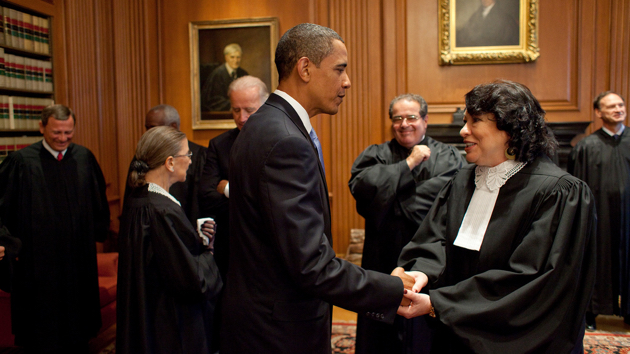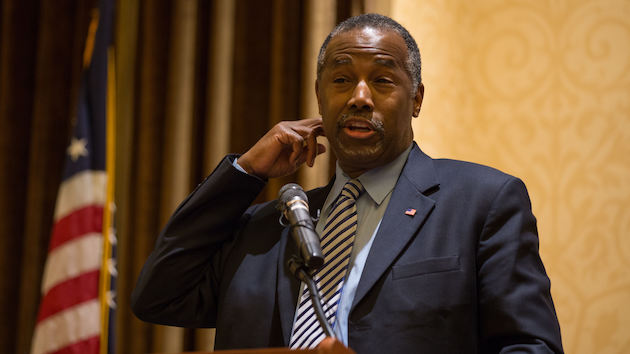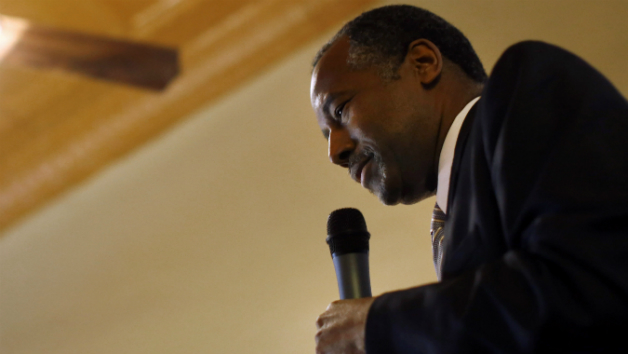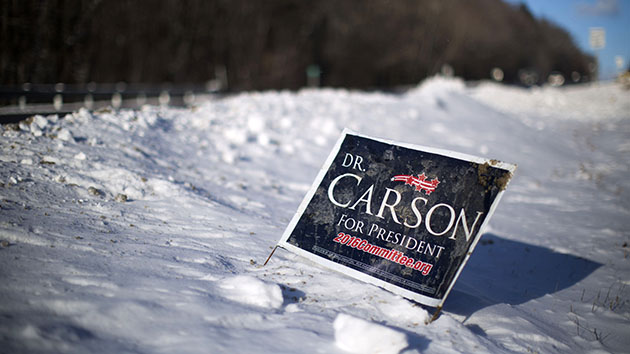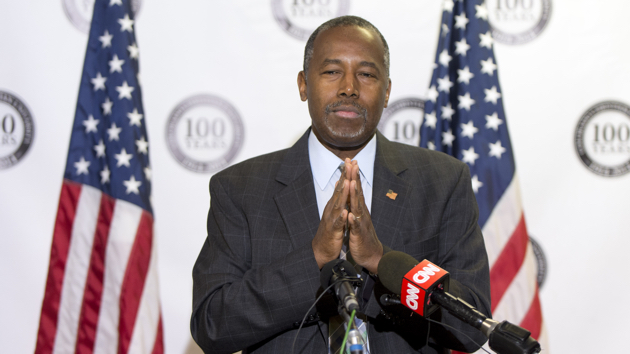
Brian Cahn/ZUMA
Ben Carson has a homework assignment for Iowans the weekend before the presidential caucuses: read up on the history of Islam. And what message will they take away? He thinks that, after a bit of studying, “you won’t call it a religion, you’ll call it a life organization system,” one that has a “apocalyptic vision.”
During a speech at the University of Iowa, Carson said that the US needed to take ISIS more seriously. The first step? He implored the Iowans in the room to learn more about the origins of the religion, hinting that ISIS’ violence is an inevitable result of the founding of Islam. “What I would suggest is that everybody here—we’ve got a weekend coming up—take a few hours and read up on Islam,” Carson said. “Please do that. Read about Muhammad. Read about how he got his start in Mecca. Read about how he was seen by the people in Mecca—not very favorably, by the way. How his uncle, nevertheless, was an influential guy. Protected him. When his uncle died, he had to flee. He went north to Medina. That’s where he put together his armies, and they began to massacre anybody who didn’t believe the same way they did.”
I didn’t want to read too much into Carson’s description of Islam, so followed up with him after the event, asking what lessons exactly he wanted Iowans to draw from his reading assignment. “I think they don’t understand all the aspects of it, including Sharia, how that plays in,” he responded. “I don’t think most people actually understand what jihad is. They don’t understand the whole apocalyptic vision that they have. When you understand that, you understand what drives an organization like ISIS.”
Still a bit confused, I double checked to see if those lessons encapsulated the entire religion, or just ISIS. “It doesn’t encapsulate everything,” he replied. “It’s really not, once you read it, you won’t call it a religion, you’ll call it a life organization system.”

